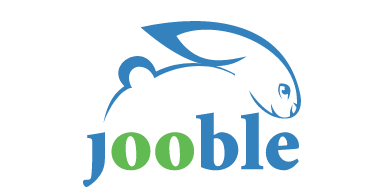Interview Tips for Career Switchers
Mastering the Interview Process in Your New Field
Changing careers is a bold step that often leads to interviews in unfamiliar industries or roles. These interviews can be daunting, as they not only assess your skills and experience but also your reasons for the career switch. This article offers insights on how to prepare for interviews in a new field, helping you navigate through potential questions and present yourself as the ideal candidate.
1. Understand the New Industry
Before the interview, invest time in understanding the new industry. Research current trends, challenges, and key players. This knowledge will help you speak confidently and relevantly during the interview.
2. Anticipate the Why Question
Be prepared to answer why you are making a career change. This is a common question that gives you the opportunity to explain your motivation and how your past experiences have led you to this decision. Be honest but positive, focusing on what you’re moving towards, not what you’re leaving behind.
3. Highlight Transferable Skills
Identify the skills from your previous career that are relevant to the new role. During the interview, illustrate these skills with specific examples. For instance, if teamwork is a key requirement, discuss a successful project you led or contributed to in your previous job.
4. Address Gaps in Skills or Experience
Be open about any gaps in your skills or experience and discuss how you plan to address them. Show your eagerness to learn and adapt, and if you’re already taking steps to fill these gaps, such as through courses or self-study, mention them.
5. Practice Common Interview Questions
While some questions will be specific to the new industry, many are universal. Practice responses to common interview questions like “Tell me about yourself,” “What are your strengths and weaknesses?” and “Where do you see yourself in five years?”
6. Prepare Your Questions
Asking thoughtful questions can demonstrate your interest in the role and the industry. Prepare questions about the company culture, job responsibilities, and growth opportunities.
7. Use the STAR Method
When answering questions about past experiences, use the STAR (Situation, Task, Action, Result) method to structure your responses clearly and effectively.
8. Showcase Your Adaptability
Emphasize your adaptability and willingness to learn new things. Use examples from your past where you successfully adapted to new environments or roles.
9. Dress Appropriately
Research the company culture to understand the appropriate dress code for the interview. When in doubt, it’s better to be slightly overdressed than underdressed.
10. Follow-Up After the Interview
Send a thank-you email after the interview, reiterating your interest in the position and reflecting briefly on why you think you’re a good fit.
Interviews as a career switcher can be challenging, but with the right preparation, you can turn this into an opportunity to showcase your unique blend of experiences and skills. Emphasize your adaptability, transferable skills, and motivation for the career change. Remember, your diverse background can bring a fresh perspective to the role, which can be a significant advantage in today’s dynamic job market.
 | Job Interview Tips What to expect and how best to present yourself in a job interview. |
 | How to Dress for a Job Interview Practical advice on how to create the right impression at your job interview. |
 | How to Handle Tricky Interview Questions How to respond when an interviewer asks you a tricky interview question. |
 | Negotiating Your Salary How to handle the important question of salary in an interview situation. |
 | How to Prepare for a Zoom Interview If you are looking for a job, you must familiarise yourself with zoom interviews. According to Indeed, use virtual interviews to recruit qualified candidates. This figure is expected to increase, with more than 93% of interviewed employers sayin... |
 | How to Prepare for a Job Interview Did you know that only who apply for a job are called in for an interview? Yes, when you get that call, be happy because you have passed the first stage of recruitment. The second stage is to attend the interview and make a good impression so th... |
 | Interview Preparation Checklist: Land Your Dream Job According to a recent study done by , more than half of interviewed candidates get rejected during the first stage of recruitment. |
 | The Importance of Professional References in Job Search: Making an Impact When it comes to securing a job offer, professional references play a vital role in validating your qualifications and abilities. While personal references may have their place in certain situations, it's crucial for job seekers with a professio... |
